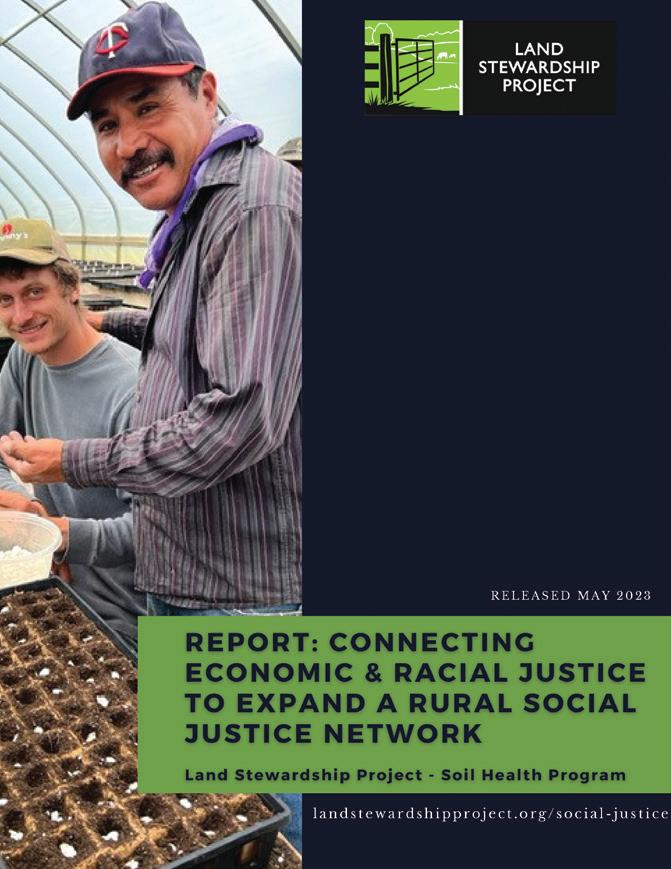
2 minute read
LSP Develops Resource for Groups Working to Grow Social Justice Networks
By Alex Romano
The Land Stewardship Project envisions a food and farming system that works for everyone, no exceptions. Racism, gender inequality, and economic injustice are major barriers to accomplishing LSP’s mission.
Advertisement
That’s why the Land Stewardship Project has developed Connecting Economic & Racial Justice to Expand a Rural Social Justice Network as a reference document for any group, agency, or organization looking to establish and grow a social justice network in their locality. This report is also intended to guide other social justice networks through discussions and activities that draw out their values, experiences, and ideas for influenc-
Battling Land Access Barriers in the Upper Midwest
ing social change in their communities.
To download the report, see landstewardshipproject.org/social-justice. More information is available by contacting me at 641-220-6000 or aromano@landstewardshipproject.org. For more on LSP’s work related to social and racial justice, see landstewardshipproject.org/social-justicestewardship. p
Alex Romano is an LSP soil health organizer based in Lewiston, Minn.
LSP Fact Sheets
TheLand Stewardship Project has available a series of well-researched fact sheets on everything from regenerative agriculture’s relationship to a resilient environment to ways people are working together to improve their communities.
Check them out at landstewardshipproject.org/fact-sheets. p
The Land Stewardship Project joined other members of the Farmland Access Hub this fall in putting on a series of networking events to help farmers seeking land.
Get-togethers were held in the Minnesota communities of Elk River, Montgomery, and Wadena, as well as in Ripon, Wis. In addition, LSP coordinated a networking event in Scandia, Minn., that focused on members of the East African farming community.

Participants in these networking events learned about financing options and alternative/ collaborative methods of accessing land. They also had an opportunity to meet other aspiring farmers and connect with landowners in the region who are interested in making land available to small and medium-sized farmers.
Of the more than 4,000 respondents to the 2022 National Young Farmers Survey who were identified as “young farmers” (under age 40), 59% named finding affordable land to buy as “very or extremely challenging,” and 65% of BIPOC farmers ranked finding affordable land to buy as “very or extremely challenging.”
Participants in a networking event held at the Oliver Kelley Farm in Elk River, Minn., had the opportunity to tour the operation’s historical crop and livestock infrastructure and learn about the farm’s desire to provide land access for smallscale sustainable farmers in the Twin Cities region. Oliver Kelley began farming in the area in 1850, and went on to found the Grange, the country’s first successful national farming organization. Farmland Access Hub members LSP and Renewing the Countryside coordinated the event in Elk River. (LSP Photo)
The Farmland Access Hub is a consortium of partners such as LSP that works to increase farmland access for beginning farmers in the Upper Midwest. At the core of the Hub are “Farmland Access Navigators,” which provide technical assistance to beginning farmers who are seeking long-term, stable, land tenure. For more information, see farmlandaccesshub.org or contact LSP’s Robin Moore at rmoore@ landstewardshipproject.org, 612-767-9480. Looking for land or have land available? Check out LSP’s Seeking Farmers-Seeking Land Clearinghouse on page 31.








